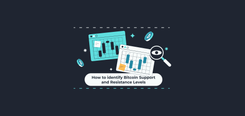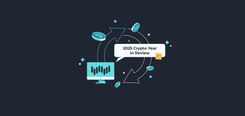What Is the Futures Market? How Does Futures Trading Work?
What are Futures Markets?
On the futures market participants exchange commodities, assets or securities for delivery at a predetermined future date at a specified price. Futures contracts allow traders to lock in the value of an asset in anticipation of its possible future decline.
The Basics of the Futures Market
Although futures contracts involve an exchange of value at a later point in time, they fix the price and the amount of the underlying asset strictly upon agreement. Futures contracts can be resold by a holder before the settlement date.
Futures trading is common in commodities. As a product requiring physical delivery, commodities are most frequently sold as an agreement on future exchange.
While futures contracts legally require the holder to take ownership of the underlying asset on the final settlement date, options on futures (options contracts) represent the right, not an obligation, to do so.

Futures are typically purchased and sold via margin trading — a financial instrument that allows investors to increase their exposure to an asset through leverage. Leverage refers to the amount of money a trader borrows from a broker or an exchange to buy a larger position than what their capital allows. A margin is collateral kept on an exchange that serves to cover possible losses to lenders.
Unlike forward contracts, which are traded over-the-counter (OTC) and have customizable terms, futures contracts are standardized and offer the same terms regardless of the counterparty.
Perpetuals are a type of futures contract that do not have an expiry date and allow market participants to hold a position for an undetermined amount of time.
Uses of Futures
Futures are most commonly used for hedging (risk management) and speculation.
Hedging refers to an investment strategy aimed at reducing losses from possible unfavorable price fluctuations in an underlying asset. Prevalent among corporations and institutional investors, futures hedging helps mitigate the risk of unexpected expenses and serves to assist in budget planning.
Speculators trade futures contracts in an effort to profit from the underlying asset’s price fluctuations. They bid on the direction of movement of the asset price and take profit in case the price changes in their favor.
Why Trade Futures?
Speculation is the most frequent use of futures among individual traders. By making educated guesses on where the market is headed, investors are able to profit from asset price volatility. Some traders use futures for hedging in order to help offset future market changes for a specific trading instrument.
Futures are usually traded with high leverage and relatively small margin (sometimes as small as 3-10% of the trading contract value). Thus futures trading provides traders with an opportunity to reap large returns on comparatively small investments.
Since the margin requirement in futures trading is similar for both long and short positions, traders are able to use the bearish strategy while trading futures with no extra margin requirements. Long trades are generally aimed at making money from the asset price increasing while short trades allow investors to profit from its value dropping.
Major Futures Markets
Some of the biggest futures markets include:
- Chicago Mercantile Exchange (CME) — the world's largest financial derivatives exchange;
- ICE (Intercontinental Exchange) — an American company founded in 2000, operating a number of financial and commodity marketplaces and exchanges;
- Eurex — an international exchange primarily offering trades in Europe based derivatives.
In the US most of the futures markets are regulated by the Commodity Futures Trading Commission (CFTC).
The first exchange to trade Bitcoin futures was the Chicago Board Options Exchange (CBOE). FTX, BitMEX, Kraken and Binance are currently some of the leading exchanges that offer crypto futures. You can find these and other crypto exchanges in the TabTrader app.
Options on Futures
Options add a layer of flexibility to futures trading. When buying a futures option a trader gains the opportunity — rather than the legal obligation — to purchase the underlying asset in the future at a predetermined price. The maximum risk the buyer is subjected to while trading options is the loss of the premium — the current market price of an options contract.
Advantages and Disadvantages of Futures Markets
Pros:
- Futures contracts are an easy way to speculate on the direction of an asset’s price movements;
- Futures can serve as protection against market volatility;
- As futures markets commonly offer high liquidity, traders have the ability to enter and exit the market without difficulty;
- Futures contracts are frequently traded on leverage, allowing investors to increase their exposure to assets and potentially multiply gains.
Cons:
- Leverage subjects investors to higher losses in case of adverse asset price movement;
- In futures trading the contracted price for a given asset may become less appealing as the expiration date approaches.
Types of Futures
Let’s take a closer look at different types of futures contracts to see which one may suit each trader profile the best.
| Financial Futures | This category includes interest rates futures and index futures contracts. Interest rates futures are a financial derivative that locks the value of an interest-bearing asset. Index contracts allow investors to bid on the direction of the general price movement of various stocks. |
| Currency Futures | Currency futures define the price of exchanging one currency for another at a future date. |
| Futures on Stocks | Futures on stocks have stocks of companies (eg. Tesla, Apple, Netflix, etc.) as their underlying asset. Unlike index futures, they lock in future prices for individual stocks. |
| Energy Futures | Energy futures contracts allow traders to bid on the direction of price movement of energy products such as crude oil, heating oil, natural gas, gasoline, etc. |
| Metals Futures | Metal futures lock in future prices of metals typically used for manufacturing and construction ( eg. gold, silver, palladium, platinum, copper, etc.). |
| Grain Futures | Grain futures have raw grains such as corn, soybean, wheat, oats, rice, etc. as their underlying asset. Grains are typically used to feed animals or for the commercial production of other products. |
| Food & Fiber Futures | Food and fiber futures specify the future prices of agricultural products like coffee, cocoa, sugar, cotton, milk, cheese, etc. Livestock is also in some cases traded with futures contracts. |
| Crypto Futures | Crypto futures allow traders to buy and sell crypto assets at a predetermined future date. To trade crypto futures in the TabTrader app just type “futures” into the search bar. |
Futures Market Example
Futures trading is commonly used for speculation on an asset’s future price fluctuations. A 6-month contract to buy 1 bitcoin for 40,000 EUR signed in May will earn a trader 1250 EUR in the case that Bitcoin’s price rises to 41,250 EUR by December
Futures Market FAQs
What is the futures market doing right now?
Please check out all of the updated real-time market data on crypto futures in the TabTrader app. Commodities and currency futures live data is available on commodities exchanges and currency exchanges respectively.
What are futures on the stock market?
Stock futures fix the future prices of stocks of public companies.
What is the futures market and how does it work?
A futures market is the type of market in which participants exchange assets for delivery on a specific date in the future.
What time does the futures market work?
Futures trading hours depend on the market hours of their underlying assets. The majority of futures contracts start trading on Sunday 6pm EST and close on Friday afternoon between 4.30 and 5pm. Crypto futures are traded 24/7 on electronic cryptocurrency exchanges.
Futures vs options
While futures contracts legally require the parties to exchange value on the final settlement date, options contracts represent the right, rather than an obligation, for them to do so.




